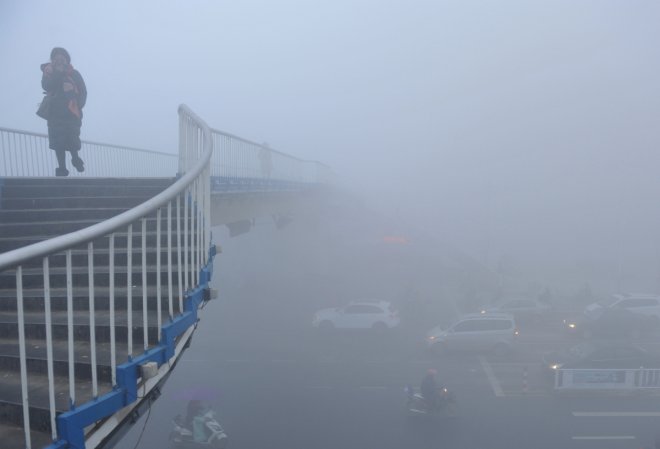
Beijing issued the highest red fog alert for a second day on Wednesday and ordered the highways to be kept closed in and around the city due to smog alert after weeks of choking winter pollution.
Many leading airports have cancelled a number of flights as China's weather bureau warned of visibility of less than 50 m in some areas.
The Beijing Evening News reported more than 2,000 tourists were stranded on a cruise ship for two extra days near the port of Tianjin. Until Monday, the ship was prevented from docking due to smog.
According to the maritime safety agencies, the poor visibility has prompted three major northern ports to suspend the loading of ships on Tuesday.
Northern China is quite known for pollution alerts, especially during bitterly cold winters. But, this time the smog alert is at the second-highest orange only and has raised several serious questions. The Ministry of Environmental Protection said it hadn't issued a smog red alert because of discrepancies in the forecasts for different parts of Beijing.
This is the third year when China is fighting the pollution war and is trying to reverse the damage that has been done to its skies, soil and water after decades of untrammelled economic growth. However, the measures that have been taken so far did not have much effect on the issue.
On Tuesday, the Hebei government said it had ordered all the polluting firms in Tangshan, which is China's biggest steel-producing city to the east of Beijing, to shut down.
The government named Tangshan Luanxian Xinglong Iron and Steel Co. Ltd as a major culprit in a statement on its website. It accused the company for failing to control emissions and even allowing the staff canteen to directly burn coal, contravening regulations.
The state media said on Wednesday that Hebei, which was referred to as the home to seven of China's 10 smoggiest cities in 2015, will build the world's biggest dust prevention barrier at the major coal port of Qinhuangdao in a bid to cut pollution. The project will apparently stretch up to two miles.









